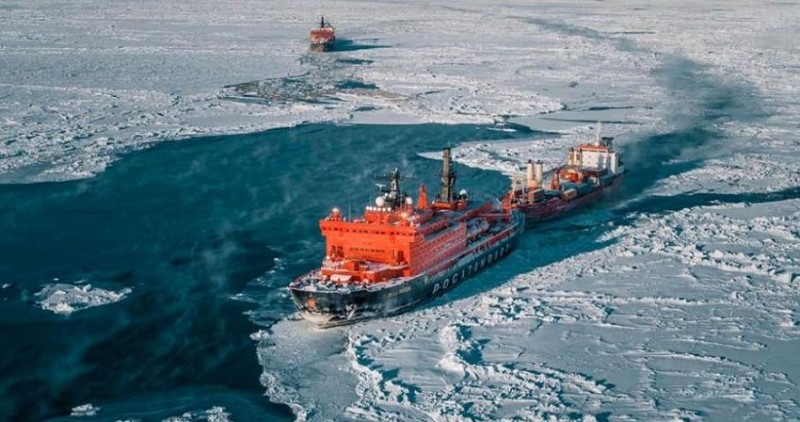
Top officials from India and Russia are in discussions to join forces on various initiatives, including research into controlled thermonuclear fusion and enhancing the transit potential of the Arctic shipping route, disclosed the CEO of Rosatom, Russia's state-run atomic energy corporation.
A E Likhacheva, CEO of Rosatom, revealed that talks with India have revolved around expanding cooperation in nuclear technology and exploring non-energy and non-nuclear sectors.
During a recent visit to the Kudankulam Nuclear Power Plant (KNPP) in Tamil Nadu, Likhacheva noted the significant collaboration between the two countries during the construction of KNPP's initial units.
"Our collaboration extends beyond India's borders. Indian companies are actively involved in Rosatom's project to construct the first nuclear power plant in Bangladesh - Rooppur NPP," Likhacheva mentioned in an email interview with PTI.
Rosatom is also venturing into various new areas of activity, around 80 in total, and is willing to share its advancements with allied nations, including India.
"We can offer India our expertise in building low-power nuclear plants," Likhacheva added.
Emphasizing the potential for scientific collaboration, Likhacheva highlighted the possibility of joint research on controlled thermonuclear fusion.
Rosatom is prepared to offer Indian scientists opportunities to conduct research at the MBIR multi-purpose fast neutron research reactor currently under construction in Russia, which Likhacheva described as the most powerful research reactor globally.
In addition to nuclear research, Russia and India are exploring cooperation in enhancing the transit potential of the Northern Sea Route, managed by Rosatom. This collaboration aims to facilitate the shipment of Russian oil, coal, and liquefied natural gas to India via transshipment in Russian Far Eastern ports.
"We are also looking into collaboration within the Euro-Asian Container Transit project, which involves establishing a pilot line for international container transit through the Northern Sea Route," Likhacheva stated.
Likhacheva reiterated Rosatom's commitment to India's long-term energy goals, mentioning plans to achieve a cumulative installed capacity share of non-fossil fuel energy sources of around 50 percent by 2030 and net-zero emissions by 2050, with nuclear energy playing a pivotal role.
Highlighting the environmental benefits, Likhacheva praised the contribution of KNPP to reducing CO2 emissions, stating that operating just one 1,000 MW unit prevents over 3 million tons of CO2 emissions annually.
Unit 1 and 2 of KNPP are operating smoothly and meeting safety standards, with construction underway for the subsequent stages.
Likhacheva announced the delivery of the first batches of a new type of fuel assemblies, TVS-2M, to KNPP in June 2022, which increases economic efficiency by extending fuel cycles.
Nuclear energy, Likhacheva asserted, is vital in combating climate change due to its cost-effectiveness and long service life of up to 80 years.
Russian nuclear power units meet modern requirements, evidenced by the high global demand for Russian-designed nuclear plants, accounting for 88 percent of exported nuclear power construction worldwide, Likhacheva concluded.
Russian astronauts used to carry a gun with them, what is its use in space?
South Korean Detained in Russia on Suspicion of Espionage